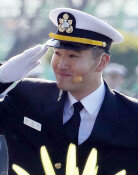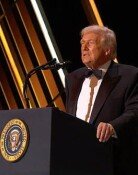`Ulleung culture shows Korean sovereignty over Dokdo`
`Ulleung culture shows Korean sovereignty over Dokdo`
Posted November. 19, 2010 11:26,
The Federation of Korean Culture Centers hosted Thursday an academic seminar on Koreas easternmost islets of Dokdo in Ulleung County, North Gyeongsang Province.
In his lecture The Historic Environment and Meaning of Ulleung Island, Dongguk University history professor Yoon Myung-chul said, The theory of Ulleung Island that considers the island as inhabited territory in ancient times and suggests that people started living there from the last years of the Joseon Dynasty is wrong.
If the fact that Ulleung Island has been an area that played a certain role in the history of the Korean people is proven and recognized, we will realize a completely different situation. In other words, it has become meaningless to try to raise issue with complicated matters on Dokdo, a territory that comprises a living community of Ulleung Island.
Yoon cited many historical facts to support his argument. General Yi Sa-bu of the Shilla Kingdom occupied Usanguk, the former name of the island, in June 512 AD. Ulleung also built close ties with the ancient Goryeo Kingdom. In the year 930, Ulleung dispatched envoys Baek Gil and To Du to Goryeo to pay tributes.
Records also suggested that in 1141, Lee Yang-sil, a governor of Myeongju-do (now Gangneung, Gangwon Province), sent fruit and leaves from Ulleung to the king.
Yoon said, Even before the motor-powered ship was invented, it was quite possible for people to ride a raft at sea to travel a distance of more than 100 kilometers, noting that Ulleung has always had exchanges with the Korean Peninsula throughout Korean history.
The seminar was organized as a venue for interpreting and examining the Dokdo debate from the perspective of history focusing on routine life, going beyond the perspective of politics, diplomacy and military. Research based on provincial history supplemented macroscopic discussions and helped demonstrate that Dokdo is Korean territory.
The federation has 227 culture centers nationwide as members. Attending the seminar was more than 90 people, including chiefs and secretary-generals from 57 culture centers.
The goal of the event was to enable the sharing of critical thinking of Dokdo and spread it throughout the nation via culture centers, which serve as a vehicle for introducing Korean culture and arts.
Seok Dae-gwon, a humanities professor at Daejeon Health Sciences College, analyzed Ulleung from an ethnological perspective in his keynote speech Life and Culture of Dokdo and Ulleung Island Residents.
Studies on the cultural perceptions of Ulleung residents toward Dokdo and Ulleung are an effort to show things that dont exist in Japan but do in Korea, he said. Time-honored cultural recognition by Ulleung residents of Dokdo demonstrates that the islets are Korean territory.
Federation chairman Choi Jong-su said, We prepared the Dokdo Academic Seminar as a culture event for diverse activities by inviting performing artists and photographers, adding, We hope that the heads of culture centers from across the nation will widely spread the cultural contents on Dokdo that they hear and see at the event.
bluedot@donga.com




![반찬통 착색 고민 끝…‘두부용기’ 버리지 말고 이렇게 쓰세요 [알쓸톡]](https://dimg.donga.com/c/138/175/90/1/wps/NEWS/IMAGE/2026/01/09/133126593.3.png)


